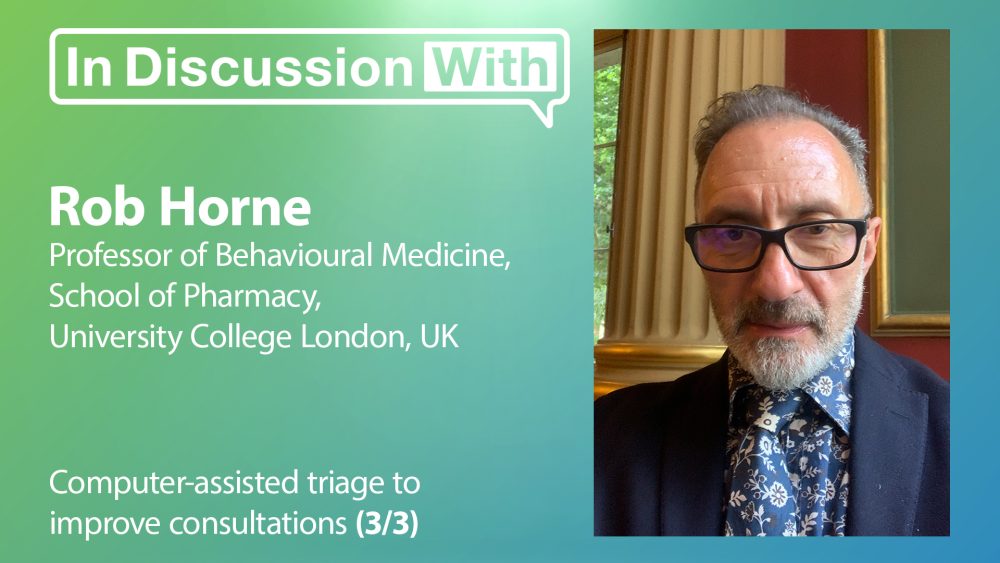Advertisment
Computer-assisted triage to improve consultations

Some additional training may be required to enable community pharmacists to use behavioural approaches to improve outcomes for patients and a computerised triage tool could help to make consultations more efficient, according to Rob Horne, Professor of Behavioural Medicine at University College London School of Pharmacy
In order to incorporate behavioural approaches to patient consultations community pharmacists might need some additional support and training although, as Professor Horne points out some undergraduate courses include “a substantial input on behavioural medicine”. Some post-graduate training might also be needed for pharmacists who have been in practice for longer, he acknowledges. Partnerships with the pharmaceutical industry might be one way to deliver such training. There is a growing recognition of the underdeveloped role of community pharmacy and innovative partnerships could be established to bring behavioural medicine training to community pharmacists, he suggests.
Digital triage tool
Another approach is through the use of technology. “In my own group we’ve developed digital tools that can triage patients by identifying concerns and doubts about treatment, addressing them not in a way that replaces the pharmacist but can prepare the patient for a discussion with the pharmacist and cover some of the ‘low-hanging fruit’ so that the pharmacy interaction becomes more efficient”, he explains.
The triage tool that has been developed is called Persignia and is based on a questionnaire. “We’ve demonstrated it works to address beliefs and improve adherence in a proof-of-principle study in inflammatory bowel disease and we’re developing it further through our spin-off company with UCL Business. It’s really quite simple – it’s based on my 20 odd years-worth of research in this area. So, it profiles people, it asks them some simple questions based on validated tools that identifies their perspective on the medicine. It identifies any doubts or misunderstandings that they have about the necessity for the medicine and it identifies common concerns and practical barriers. Then, based on what they select as their particular doubts or concerns it gives them a …. brief story to address that concern or that doubt. What we find is that it can help people develop a more positive attitude towards their treatment, overcome concerns which would have been hidden and act as a barrier to them taking the treatment and align them with the treatment. Now, that doesn’t replace what the clinician does – it’s not meant to do that – but it can be a preparation.” Given that consultations are always short – perhaps as little as five minutes – this can be a useful foundation for discussion.
Professor Horne explains: “It breaks the barrier …. that many patients have to discussing concerns about their treatment with a pharmacist or doctor because of that thing I mentioned earlier where they have two [conflicting] ideas at the same time – ‘I like and trust the clinician but I don’t like and trust the treatment – but I can’t tell the clinician that I don’t like and trust the treatment because they might interpret that as a lack of trust in them and I don’t want to compromise that relationship’. So it can break down that initial barrier that makes adherence and patient’s concerns about treatment often something that’s hidden in the consultation”
“I think this is the area that we need to move more into and I believe that pharmacy is really, really underutilised all across the world – there’s much more that we can do”, he concludes.
Read and watch the full series on our website or on YouTube.





